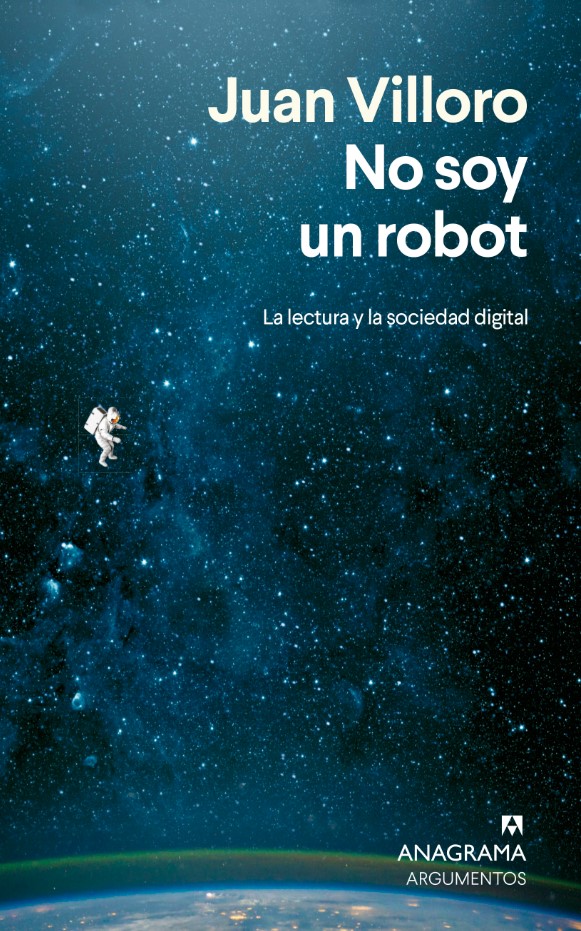
Juan Villoro: No soy un robot
Villoro reflects on how the digital transforms our lives and our relationship with reading. Up from these pages pop mobile devices, selfies, and Twitter (now X), facial recognition technology, the internet and viral lies, online reading, and a transformation in how information is broadcast… A new technological context that leads to the “disappearance of reality.” The book explores the anticipatory clues visible in the most technologically advanced countries, like Japan and South Korea, the prophecies contained in the visionary literature of Ray Bradbury, and the old controversies (present in Rousseau and Diderot) surrounding reality and representation, which now take on new relevance.
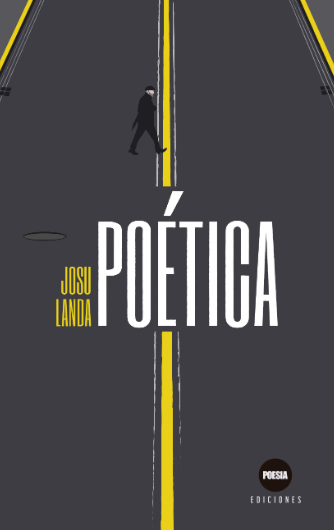
Josu Landa: Poética
“This is a high-flying book from Josu Landa; it is a poetics, or rather, a philosophy of poetry. In fact, philosophy and poetry have gone hand in hand; there have been philosopher-poets, like the Presocratics Empedocles, Heraclitus, and Parmenides, who wrote their ideas in verse, and also poet-philosophers, like Lucretius, Dante, and Goethe. Nevertheless, the greatest challenge is writing a philosophy of poetry, which is as arduous as attempting a poetry of philosophy. This endeavor is connected with the philosophy of language, for just as this discipline must explain how a series of sounds or inkstrokes acquires meaning, this book seeks to explain how such a series takes on the status of poetry.” – Mauricio Beuchot
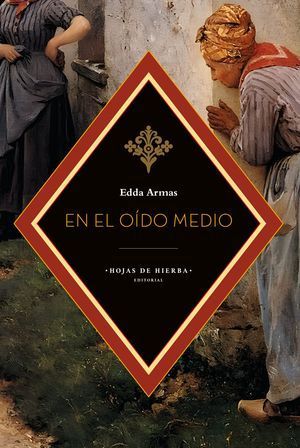
Edda Armas: En el oído medio
Edda Armas refers to the voices that come along with this book and intersect in its text as supports that embrace, unleash, or highlight what she means to say. “If you keep hold of the other’s hand in the text that’s being woven, in that act of sharing, the text takes on a strength that surprised me because I hadn’t done so in other books.” There are poets, philosophers, musicians… “These are voices with which I greatly concur: Antonio Gamoneda, García Lorca, Cerati, Eduardo Moga, Marcel Proust, Clarice Lispector, José Emilio Pacheco, Patricia Guzmán, Watanabe, Rafael Cadenas, Yolanda Pantin… There are authors from many countries. These are books that, for a time, accompanied me, and that is the importance of art: it gives you many networks that collude in creation to give meaning to an expression.” The use of such varied voices universalizes the experience of suffering. Human beings, this book tells us, all suffer pain in the same way and need to share it, to endure it together.
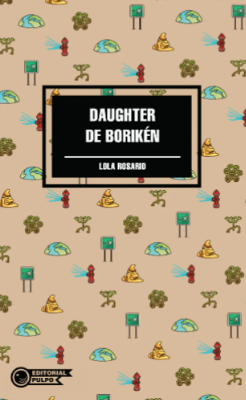
Lola Rosario: Daughter de Borikén
“Lola Rosario’s poems reflect the urgent voices of those who returned, who fight for their roots and cry out ‘¡Borikén presente!’ with every action, every breath, and every act of love and independence. These poems, an intimate and meticulous mix of English and Spanish, remind us that both languages come from colonial tongues. In ‘Spanglish pride,’ Rosario writes: ‘You gotta remember/ inglés is not our mother tongue/ ni tampoco el español yours/ both landed on the shores of our mouths/ like murderous colonizadores/ seeking to rob us of/ much more than our tierra.’ Rosario also writes about beauty, resistance, and the identity of the Boricua woman. Finally, the importance of these poems’ protest is undeniable. ‘¡Lárguense ya!’ and ‘Clipped’ confront the history of U.S. interests in Puerto Rico, colonialism, and experimentation on the country’s bodies and fertile ground. Each and every poem in this collection serves as a call to those who are already here to continue the struggle, and to those who are still far from home.” – Jacqueline Jiang
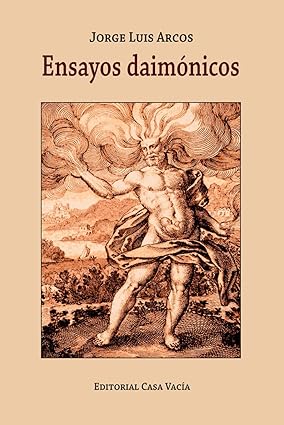
Jorge Luis Arcos: Ensayos daimónicos
“His words lead to the flow of an often-lost identity. Alterations that do not abandon poetic knowledge, through which he has composed one of the most important bodies of essayistic work of current Cuban literature. Poetic thought and poetic writing go hand in hand for Jorge Luis Arcos.” “There are examples that refute the thesis—put forth by Charles Baudelaire and Juan Ramón Jiménez, among others—that the poet is half creator and half critic. But, just the same, there are others that confirm it. In Cuba, I can think of no writer who embodies this archetype more thoroughly than Jorge Luis Arcos. In his work, the tasks of reflection and creation come together as two facets of a single personality. – Efraín Rodríguez Santana and Carlos Espinosa Domínguez
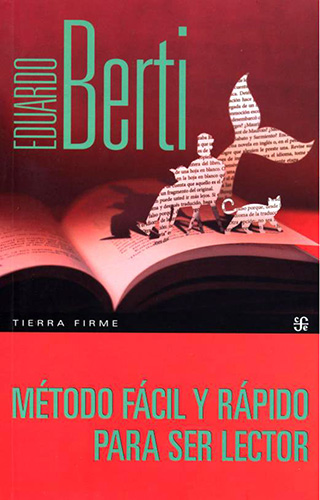
Eduardo Berti: Método fácil y rápido para ser lector
If reading can be a celebration, why limit yourself to a series of identical rules or predictable protocols? In these pages, Eduardo Berti offers answers to this question, and puts before us new ways of reading fiction: active and creative ways, jumping off from methods that are easy and innovative, individual and collective, analytical and comical. Método fácil y rápido para ser lector teaches us to explore our beloved books from never-before-seen perspectives. Discover the falseness of that cliché that tells us to turn the page once and for all.
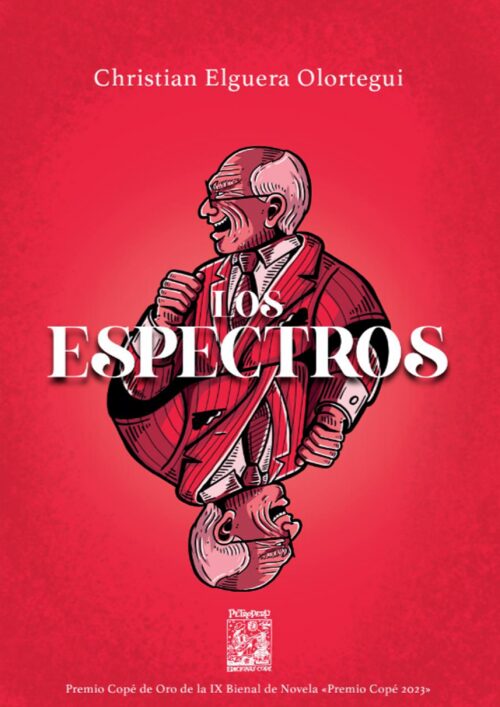
Christian Elguera: Los espectros
Los espectros, by Christian Elguera, winner of the Premio Copé de Oro of the IX Bienal de Novela “Premio Copé 2023,” recreates the panorama of Peruvian and international political history of the twentieth century. With remarkable technical range, the chameleonic figure of Eudocio Ravines leads us down the dark paths of power and reveals the sinister forces in motion behind the big desisions that affect the masses. This novel offers a sarcastic vision of the contemporary history of Peru.
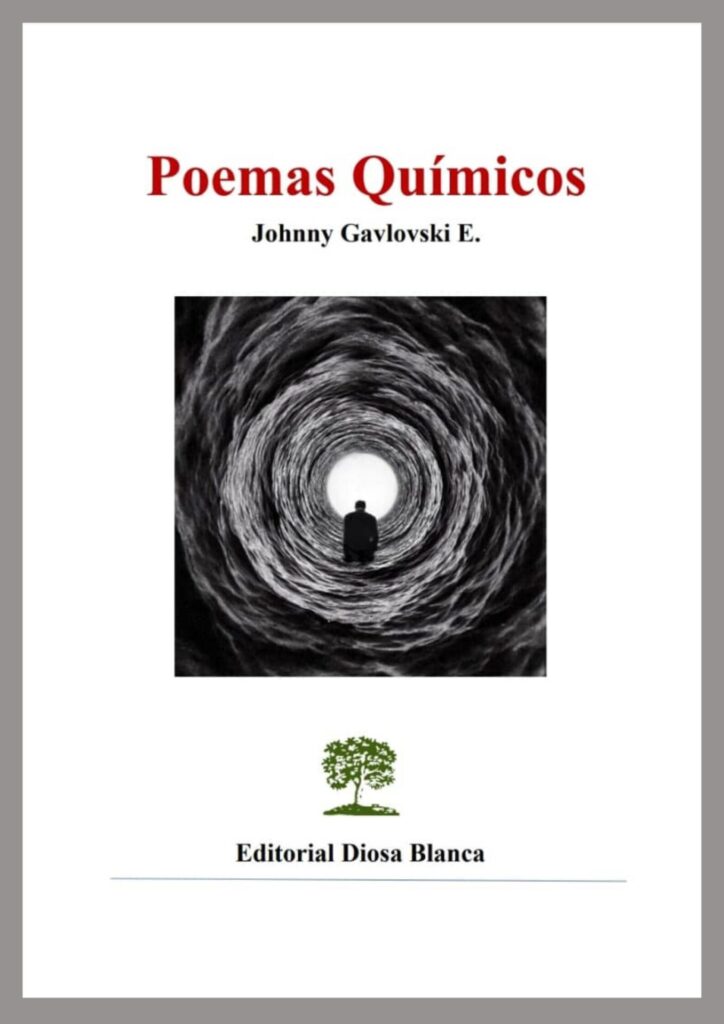
Johnny Gavlovski: Poemas químicos
“In the drama this book puts before us, there are many cross references to Dante’s Comedy: the image of a necessary catabasis, of descending to the underworld, to Hades, entering hell in order to understand heaven through a process of purification. This book reproduces, both intimately and openly, the Inferno–Purgatorio–Paradiso trilogy: the metaphor of the Hurricane that marks the collection’s second chapter is astonishing, as is its correspondence with the fifth canto of Dante’s Inferno: and I reached a place where great lamentations hurt my ears. We were entering a place that lacked light, and that roared like the tempestuous sea when disputed by conflicting winds. The infernal hurricane, which never stops, wrapped up in its whirlwind of spirits; it spins them around constantly, and shakes and troubles them: when they find themselves before the dilapidated fence that holds them in, there are the screams, the sobs, and the laments.” – Edgar Vidaurre
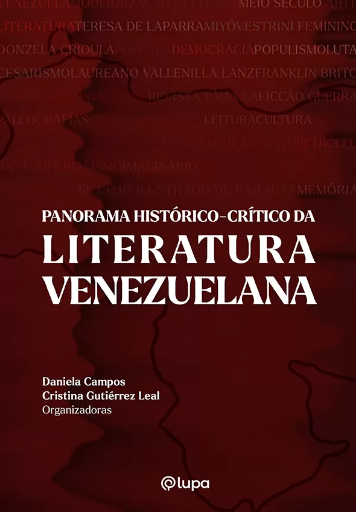
Cristina Gutiérrez Leal and Daniela Campos: Panorama histórico-crítico da literatura venezuelana
“This collection, organized by researchers Daniela Campos and Cristina Gutiérrez Leal, stands out as a significant landmark in studies of Venezuelan literature in Brazil. It offers an approach that is simultaneously comprehensive and detailed, passing from the nineteenth century through to the present day. Divided into four parts, the book examines diverse aspects of Venezuelan literature, including its historical roots and comtemporary themes that span the intersection between politics, society, and culture. It boasts analyses of cultural modernization, populism and democracy, the anti-colonial imagination, and the literature of petroleum, as well as discourses of migration. Composed of twenty-seven articles by internationally recognized academics, this work is required reading for all those who seek to understand the particularities of Venezuelan literary production and its increasing presence in the global scene. Furthermore, the translation into Portuguese broadens access to this important intellectual production, contributing significantly to the understanding and appreciation of Venezuelan literature in a Brazilian context. This collection of guiding texts allows us to perceive how literature can serve as a powerful lens with which to understand and interpret Venezuelan reality and its interactions with the world.” – Tatiana Capaverde
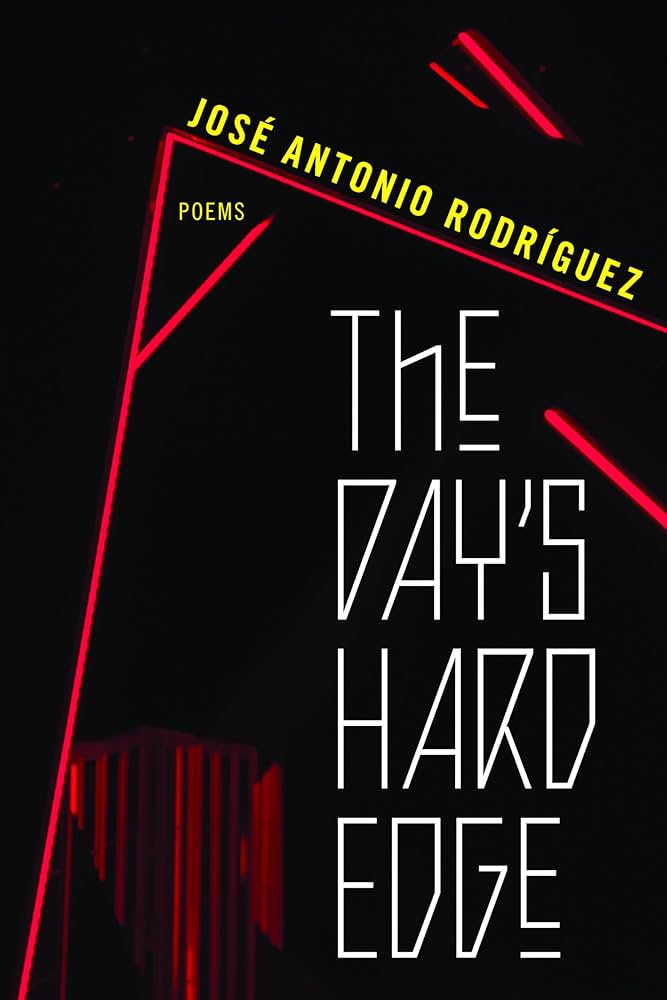
José Antonio Rodríguez: The Day’s Hard Edge
In his fourth poetry collection, José Antonio Rodríguez investigates how one constructs a relationship to the self, to community, and to poetry itself. The Day’s Hard Edge is composed of three sections, the first of which situates the reader in the speaker’s world, one marked by multiple forms of trauma. Here are the contours of the Texas/Mexico borderlands where the speaker’s initial sense of self and community emerges. The second section broadens in scope and considers the potential and limitations of poetry as a site for meaning-making. The third section brings the speaker to a new understanding of the poem as it relates to the transformative and destabilizing experience of trauma. Ultimately this book lays bare an individual and, in doing so, shows how poetry acts as a place of succor and vulnerability for one’s very identity. Together these poems explore what it means to be queer, immigrant, and Chicano.
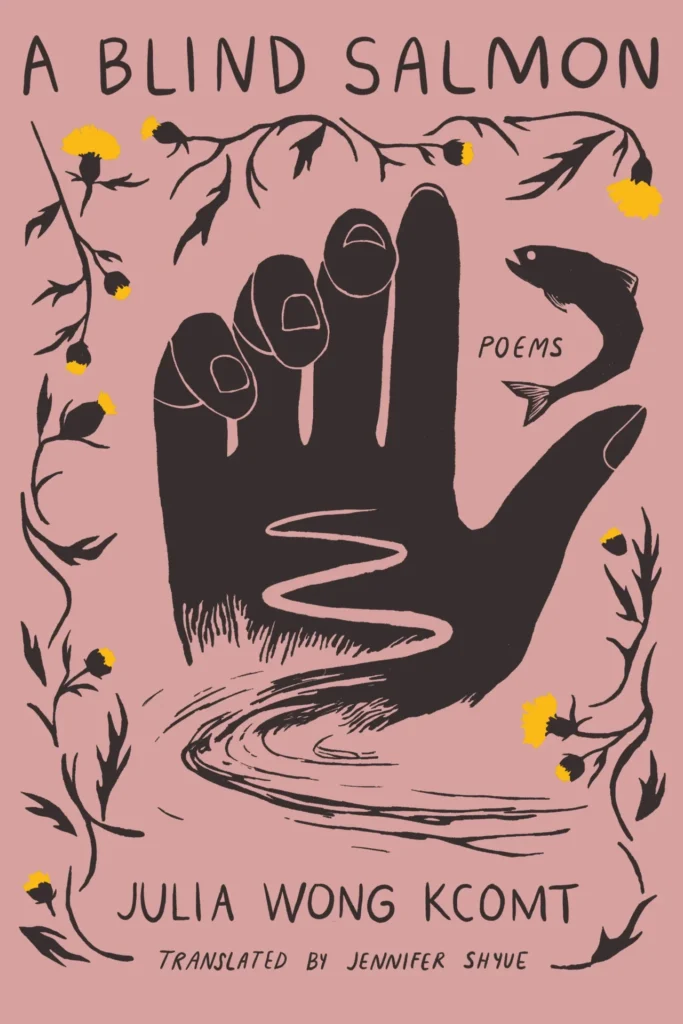
Julia Wong Kcomt, translated by Jennifer Shyue: A Blind Salmon
Tusán writer Julia Wong Kcomt’s sixth collection of poetry, A Blind Salmon is her first full-length collection available in English. Written while she was living in Buenos Aires, the collection crosses borders between Berlin, Buenos Aires, Chepén, Tijuana, and Vienna. It takes up sameness and difference, shot through with desert sand. In these poems, Wong Kcomt renders homage to writers such as the Peruvian poet and visual artist Jorge Eduardo Eielson, who died in Milan as she was writing them. She fingers the filmy line between poetry and narrative prose to build a lyrical menagerie all her own.
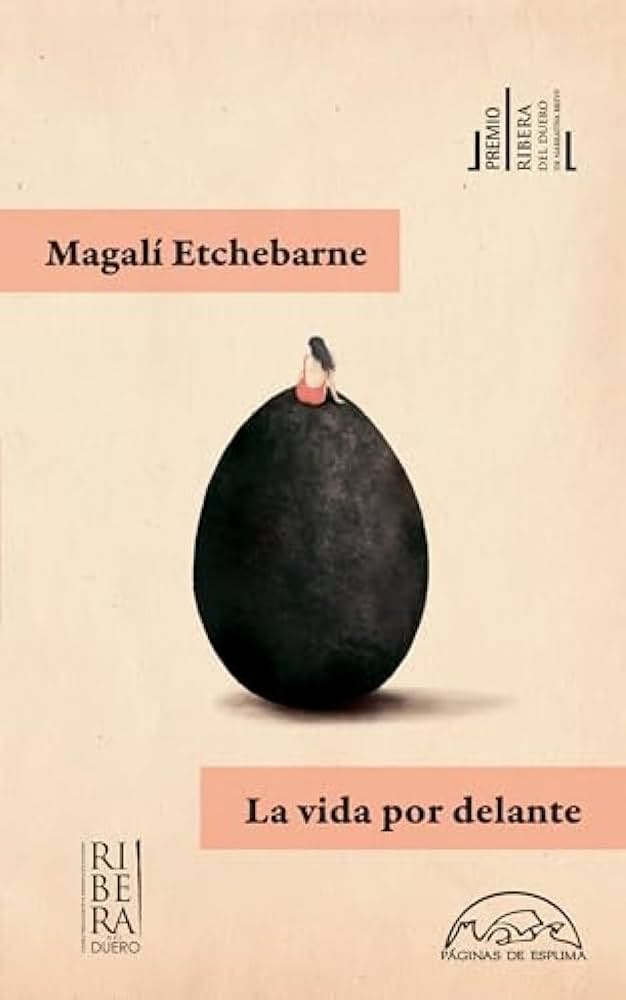
Magalí Etchebarne: La vida por delante
A group of women who stand up to the sordidness of the passage of time; two friends on holiday in an imposing landscape where darkness and the past lurk like a stalking animal; two sisters who postpone doing away with their mother’s ashes in the sea; a couple living in the tension of permanent conflict. With eyes and ears highly attuned to horror, but also to beauty, the stories of Magalí Etchebarne, rich in mastery, intelligence, and humor, delve into the lives of characters locked in a constant struggle with suffering. Four universes in which tragedy and comedy dance intertwined, and that skillfully depict life’s inclemencies and the tireless pursuit of love and hope.
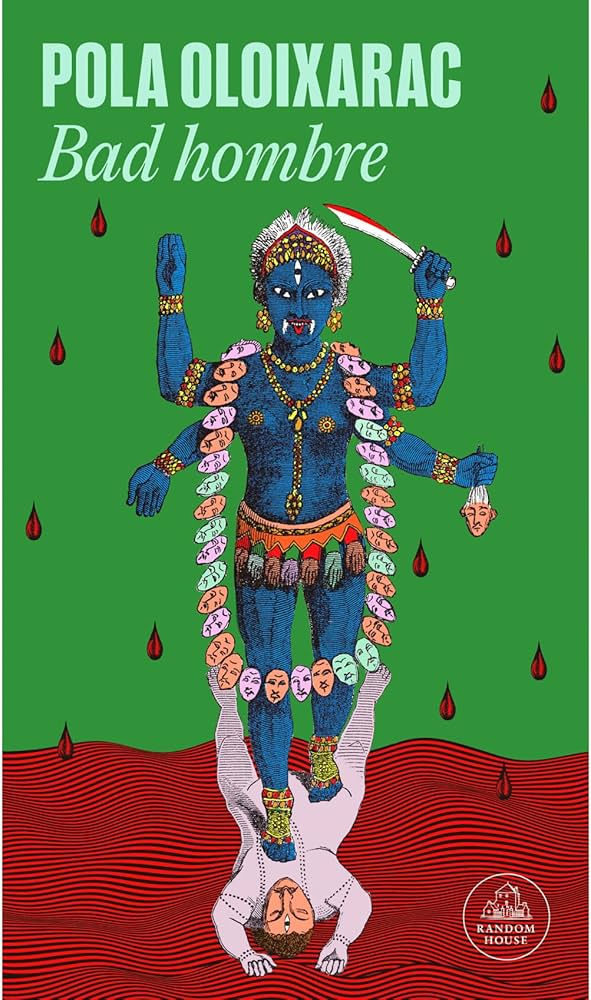
Pola Oloixarac: Bad hombre
For a period of time, Pola Oloixarac received a series of invitations from women who had an unrelenting goal: to punish certain men with whom they had (or hadn’t) had a romantic relationship. The accusations levied against them were chilling, and they demanded that the narrator take a side: Does she stand with feminist justice or with the “bad hombres”? There could be no middle ground. Fascinated and sometimes perplexed, Oloixarac ventures into the labyrinth of a system able to cast a cloud of suspicion and condemnation over almost anyone, including herself. Through captivating, sometimes monstrous characters, the author dissects the mechanisms of cancellation and political correctness, just as she leads us to explore the complexities of sex and desire. In her sharp, thoughtful style, Pola Oloixarac constructs in Bad hombre an intimate novel, passionate about the power of women, that brings to light scenes of Victoria Ocampo and her lovers, sexual sects in California, cyber-basilisks, and an exploration of the centrifugal forces of a new configuration of the world that both attracts and confounds us.
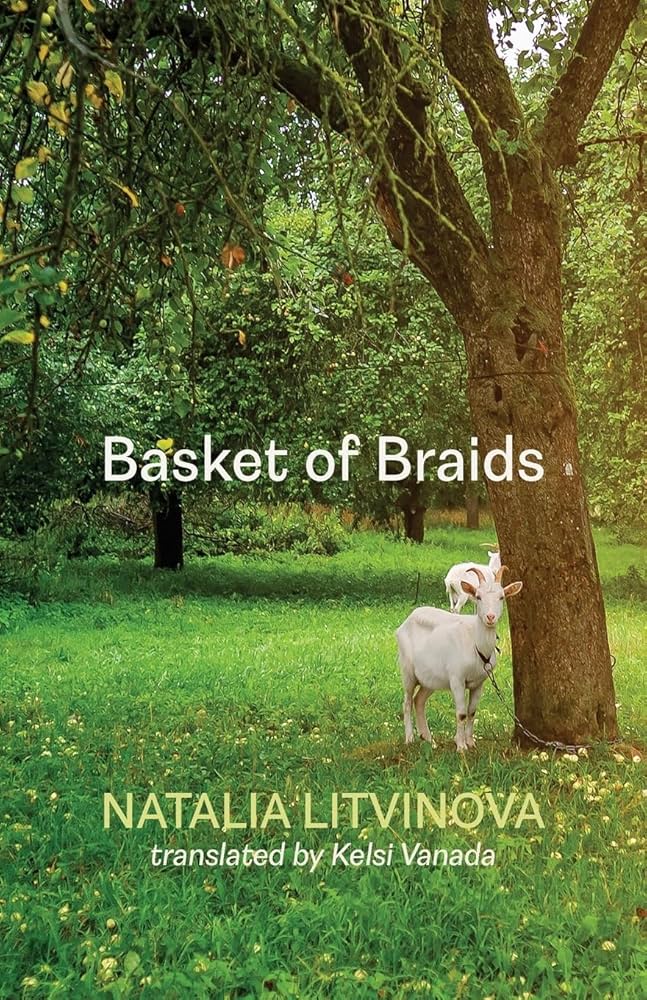
Natalia Litvinova, translated by Kelsi Vanada: Basket of Braids
The title of Basket of Braids forms a surprising image. Why would anyone store braided hair in a basket? For Belarusian poet Natalia Litvinova, who immigrated with her family to Buenos Aires at the age of ten, this basket of braids symbolises the strength of the bonds between the rural Slavic women who came before her—and her own link to her heritage across time and space. Litvinova’s poems evoke memories of the culture and place that shaped her through dense lines rich with imagery. Each poem is a jewel, a talisman, a spell, often lingering on relationships between Litvinova’s ancestors and the land they were tied to, its flora and fauna. Appearing for the first time in English translation by Kelsi Vanada, Basket of Braids gives readers an intimate experience of one poet’s memory and heritage, held in language like amber.
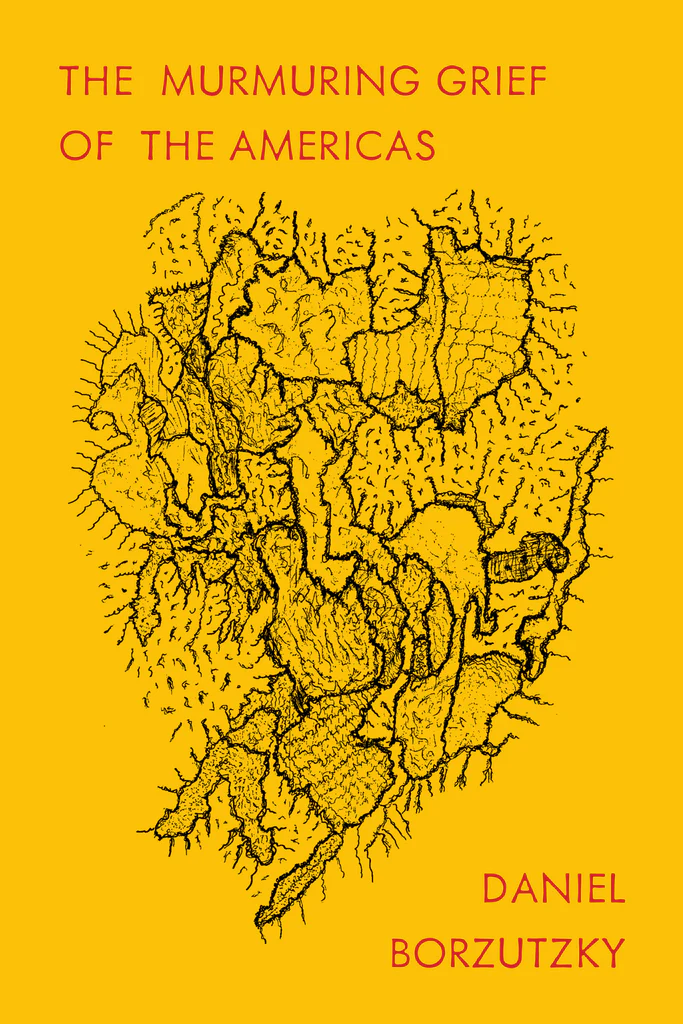
Daniel Borzutzky: The Murmuring Grief of the Americas
In The Murmuring Grief of the Americas, 2016 National Book Award winner Daniel Borzutzky holds to account the private interests driving Western humanitarian decisions, laying bare the immense toll of exploitative labor practices and the self-serving nature of authoritative bodies. These powerful, musical poems explore our hemispheric grief under the yokes of labyrinthine immigration policies, militarized policing, and mass capitalism. Daniel Borzutzky is a poet and translator. His 2016 collection, The Performance of Becoming Human, received the National Book Award. Lake Michigan (2018) was a finalist for the Griffin International Poetry Prize. His most recent translation is Paula Ilabaca Núñez’s The Loose Pearl (2022), winner of the PEN Award for Poetry in Translation. He teaches English and Latin American and Latino studies at the University of Illinois at Chicago.
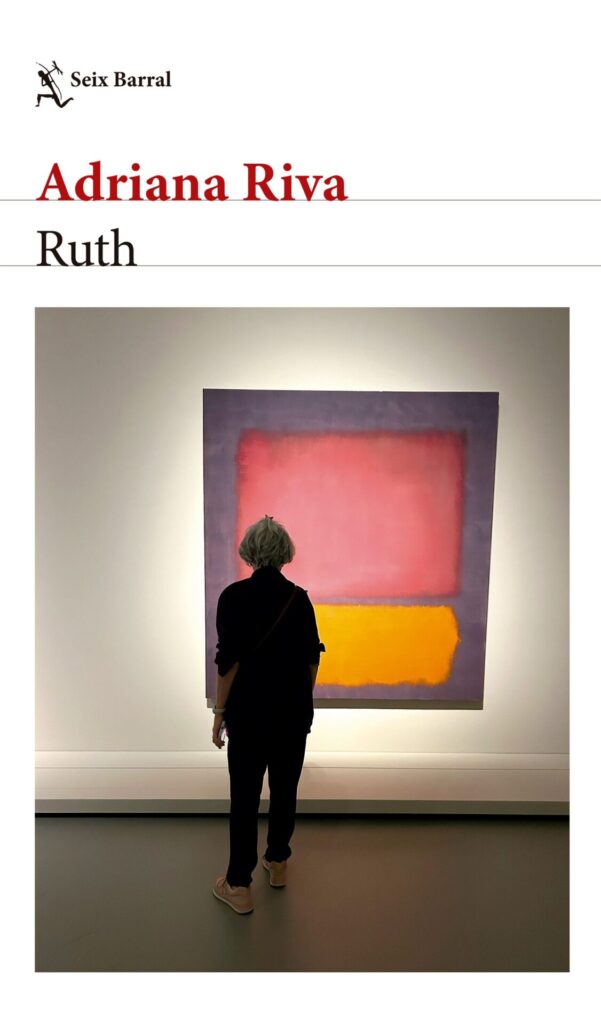
Adriana Riva: Ruth
Ruth is a woman who goes to the opera with her friends, takes art classes on Zoom, talks to her kids, watches her granddaughters. She expounds on the things she likes and doesn’t like, laying bare the wisdom she has earned from experience. Ruth is a Jewish woman, a widow with time on her hands for the first time, finally able to dedicate her energy and wit to exploring the nooks and crannies of a desire unmoored by obligations. With clear, amusing prose, full of humor and notes of tragicomedy, Adriana Riva breathes life into the inner world of an old lady on the cusp of her eighties who is tired of obeying and chooses instead, for the first time, to speak her mind.
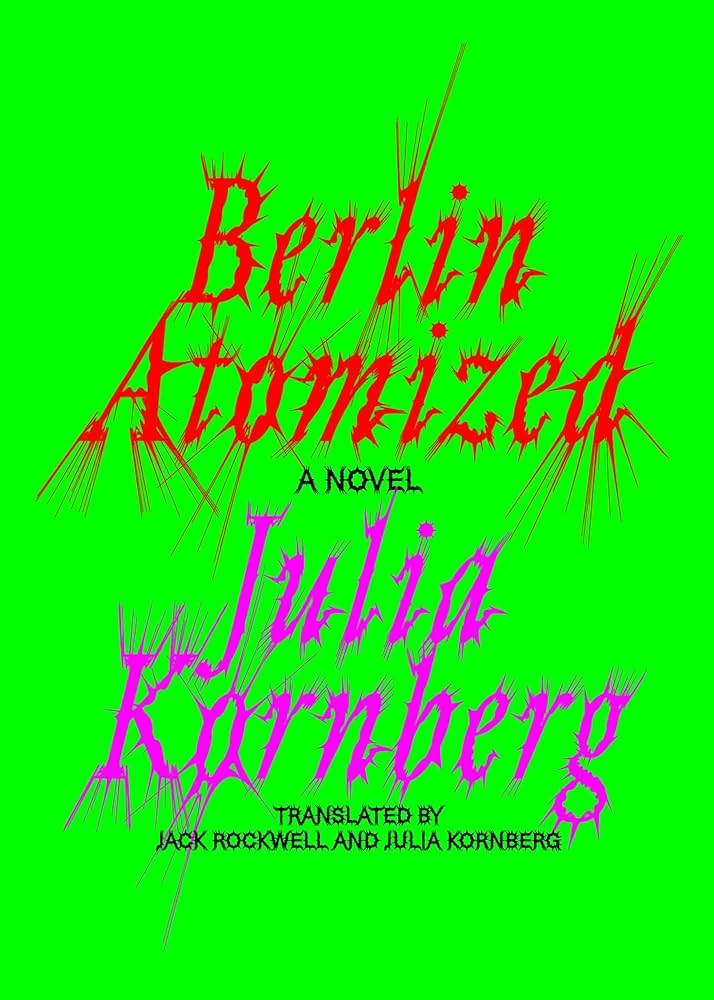
Julia Kornberg, translated by Jack Rockwell and Julia Kornberg: Berlin Atomized
Berlin Atomized begins in Buenos Aires of the early 2000s with the self-baptisms of Nina Goldstein. She bathes too frequently, washing with fervor and repeating: “I am not asleep.” She grows up partying and taking undeserved siestas, while her eldest brother Jeremías is drawn into the city’s powder keg music scene, and the middle sibling, Mateo, learns of his terminal illness and prepares to join the IDF. Though Argentina faces the worst economic crisis in its history, the Goldsteins are being reared in a newly developed gated community that displaces working class families. Each sibling rehearses their escape from the capitalist Eden of their birth, unaware that the gated community will soon be underwater, and their family scattered all over the earth. From Punta del Este to Paris, Berlin to Jerusalem, Brussels to Tokyo, the novel progresses into a dire near future of constant flight and fire as the siblings search for one another. Defiant and dexterous, percussive and percolating with violent light, Berlin Atomized is Julia Kornberg’s napalmic debut—a tale about the end of the world, as told by the clear-eyed youth to which that world had been promised.
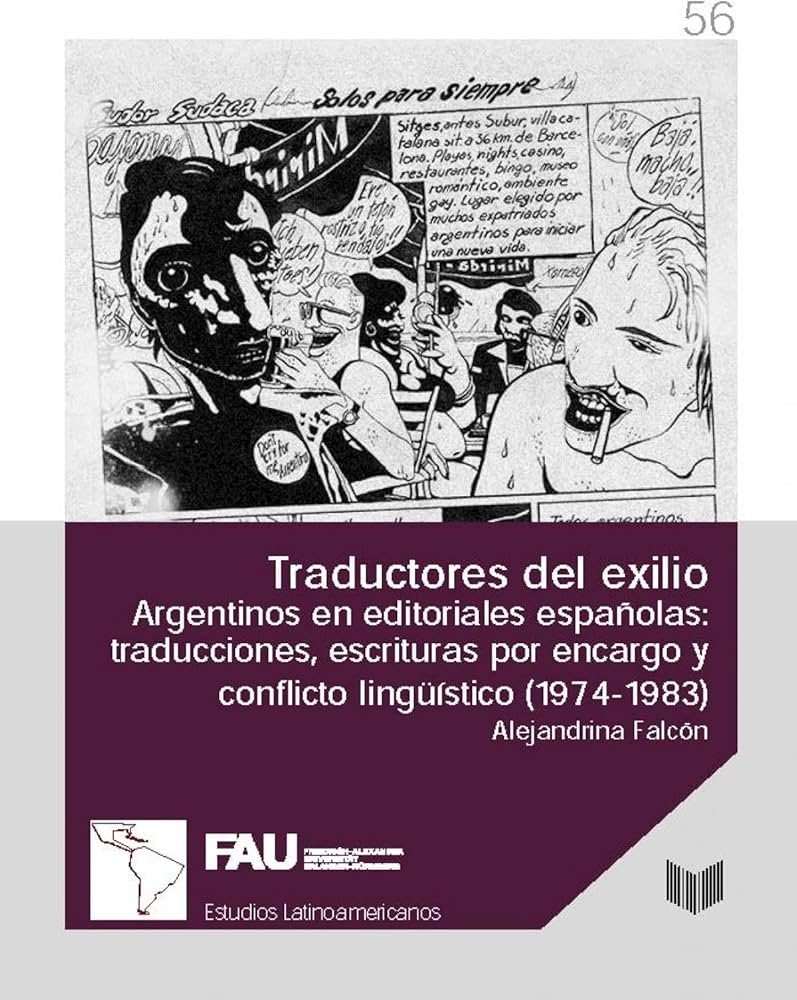
Alejandrina Falcón: Traductores del exilio: Argentinos en editoriales españolas: traducciones, escrituras por encargo y conflicto lingüístico (1974-1983)
This book can be read as a contribution to the cultural history of the Argentine exile community in Spain and as a study of practices of translation and literary importation in the Hispano-American publishing field in the last decades of the twentieth century. Both plotlines come together in the story at hand: the story of the Argentine exiles who put their strength and knowledge to work for the Spanish publishing industry between 1974 and 1983. The presence of Latin American workers at Spanish presses has not yet been systematically studied or represented in the multiple narratives that make up the collective memory of Hispano-American publishing. One purpose of this book’s research is to make manifest this presence, exploring the set of themes and problems that circled around it. Another is to contribute to knowledge of the history and sociology of literary translation in the Spanish-speaking space, building a collective biography of literary importers and exploring the motley world of the Argentine translators who, from exile, had a hand in the production of translated and popular literature with foreign pseudonyms.




